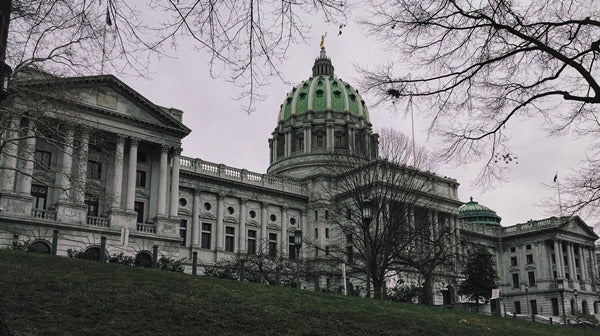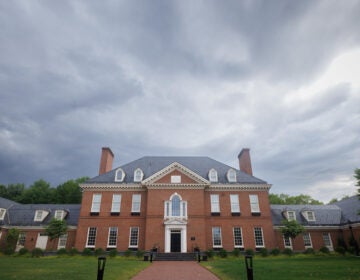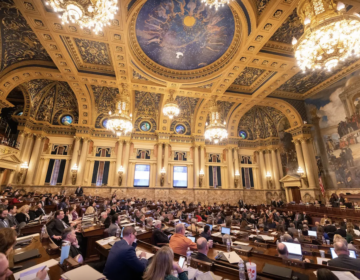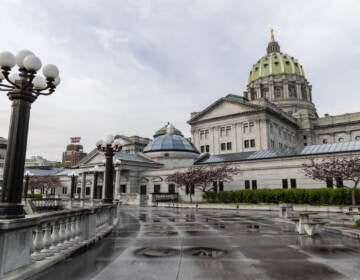Pa. Legislature has a $95M surplus, audit finds
This year’s review showed a smaller surplus than last year’s, with overall legislative reserves decreasing from $118 million last year, to around $95 million as of June.

Pennsylvania State Capitol in Harrisburg. (WITF)
An audit of the Pennsylvania Legislature has found that the House, Senate, and internal departments had a $95 million funding surplus at the end of this budget year.
That’s a smaller surplus than last year’s, with overall legislative reserves decreasing from $118 million and change to about $95 million as of June.
However, the surplus could be significantly more than it appears in the report.
Lawmakers are often pressured to cut down on their excess cash, particularly in the face of the commonwealth’s recent budgeting woes.
Cumberland County Rep. Mark Keller, the Republican chair of the audit process, said there was some belt-tightening.
“The House and the Senate put money into the budget off of their reserves to balance the budget,” he said.
But the biggest difference actually comes from a new reporting standard that requires lawmakers to factor pension and other post-employment payments into the audit. That drastically reduced the overall surplus number.
Otherwise, fund totals have risen virtually across the board.
Eric Epstein of watchdog group Rock the Capital said he thinks the reserves — or, as he calls them, slush funds — should end or at least be capped to spur lawmakers to finish budgets faster.
“Everybody knows that the Legislature gets paid no matter when the budget’s getting done,” he said. “They get per diems, they get health benefits, that hasn’t stopped. What has to stop is them rewarding themselves for not getting the budget done.”
Without a surplus, the Legislature must borrow money to pay staff during a budget impasse, which is more expensive in the end, said Sen. Pat Browne, R-Lehigh.
“If you’re going to borrow to accommodate current expenditures, that is universally known as an ineffective way of managing cash,” said Browne, chairman of the Senate Appropriations Committee.
Browne conceded that surplus numbers had indeed risen across agencies, but said the numbers are “still within the reasonable limits of what is necessary to accommodate the operations of the General Assembly in timelines of closing budgets.”
WHYY is your source for fact-based, in-depth journalism and information. As a nonprofit organization, we rely on financial support from readers like you. Please give today.





